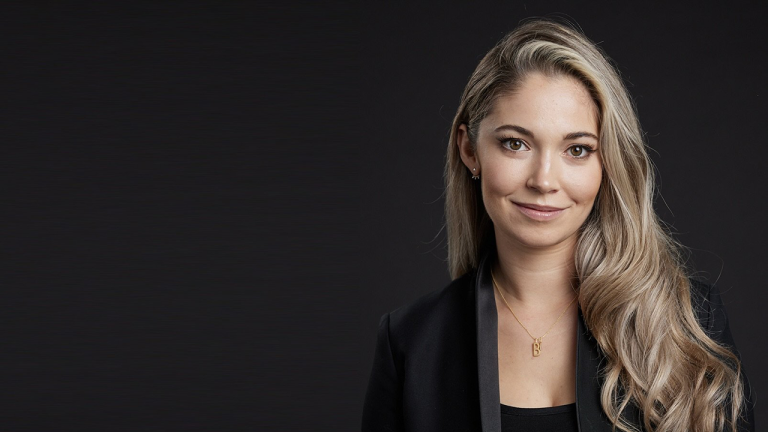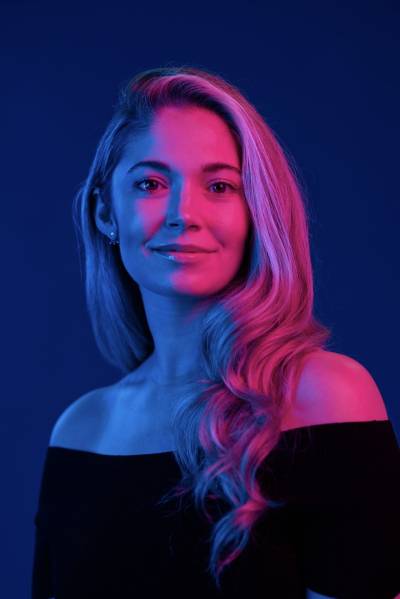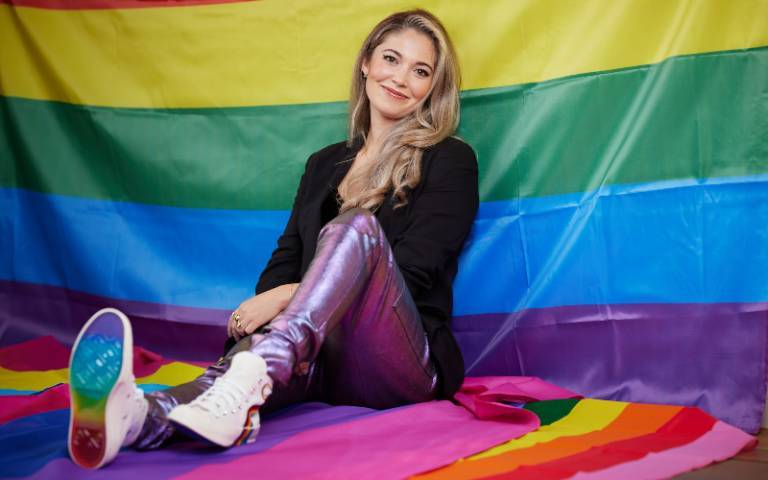A journey in understanding why people do bad things | Dr Julia Shaw
29 June 2023
Dr Julia Shaw is an honorary research associate in UCL’s Division of Psychology and Language Sciences (PALS). She specialises in criminal psychology and is the author of multiple best-selling books.

Dr Julia Shaw has always been interested in why people do bad things.
Her fascination doesn't come from a place of judgement. After all, Shaw points out, we are all capable of them.
“It’s about understanding and emphathising with why people do bad things, rather than othering and dehumanising,” she says.
Famous philosopher Friedrich Nietzsche famously said, ‘Thinking evil is making evil’. It refers to his contention that evil, and good for that matter, are not finite but rather subjective constructs we create ourselves. It is an approach that immediately resonated with Shaw.
This formed the genesis of her book, Making Evil. You can watch her Ted Talk on the notion of ‘evil’ here.
Initially, Shaw studied with the intention of becoming a clinical psychologist, but soon realised the clinical settings simply weren’t for her.
“I realised that (my career) wasn't going to be doing therapy with inmates or people who've committed crimes. It was going to be researching why people do bad things in general.”
"I decided to go instead into criminal psychology – specifically research on criminal psychology.”
She has never looked back.

Shaw has studied the field of human memory, with a particular focus on ‘false memory’.
“A false memory is a memory of something that never actually happened,” she says.
“There are two types. One is a partial false memory, which is misremembering a detail – maybe something someone was wearing or the time of day. Or it can be a full false memory. That is, a memory of an entire event that didn’t happen.”
As a researcher, Shaw is interested in why we make these mistakes. However, it’s an interest that holds a strong relevance to the justice system particularly. Witness errors are one of the leading reasons for wrongful conviction.
Fascinatingly, it can also hold true for those accused of crimes.
“As a suspect, you can even misremember committing crimes. Through leading and suggestive interview practices, you can become convinced that you committed a crime that never actually happened.”
“So understanding false memory is really important for these specific settings.”
In the midst of the Covid-19 pandemic, Shaw embarked on her most personal project yet.
She wrote her third book, Bi, exploring the history and science of bisexuality, drawing in-depth on her own experiences.

“As a bisexual person, I didn’t know anything about my own past. I didn’t know whether there was any scientific study into experiences like mine. I wanted to see bisexual people in history.”
Initially, Shaw found it incredibly difficult. As she suspected, it was a largely invisible section of society – particularly in the field of academic research.
So, she turned to Twitter, putting out a tweet asking her network if any researchers were studying bisexuality. To her surprise, she was inundated with responses from scholars all over the world studying bisexuality in fields ranging from sociology to film studies.
“It’s easy to say there’s nothing out there, because it’s really hard to see it,” she says. “But there is actually a lot going on.”
It reinforces Shaw’s aim to bring greater visibility and understanding to bisexuality.
As for what’s next? Shaw is in the process of writing her next book on environmental crime, or ‘green crime,’ a growing area of criminal psychology.
It continues her passion of applying criminal psychology to the context of real-world issues she is passionate about. It’s a career trajectory that would have never been possible if Shaw didn’t pivot from her initial clinical pathway.
This open-mindedness is a message she wants to impart on those starting out in the study of psychology.
"You don't need to specialise too much right away,” she says. “I thought I wanted to be a clinical psychologist and then when I tried it, I didn't like it. That is as useful to know as knowing exactly what you do like. So do a test drive and be willing to reject things that you've once thought you wanted to do.”
“The other thing is realising that, yes, academia can be a great place to work. But there are also lots of hybrid jobs. Science is a big thing and it doesn't just live in a university. Science lives in the world and you can take it with you when you leave.”
Related
- View Dr Julia Shaw’s UCL academic profile
- You can find out more about Dr Shaw’s work, and available books, on her website
- Follow Dr Shaw on Twitter and Instagram
- UCL Division of Psychology and Language Sciences
 Close
Close

